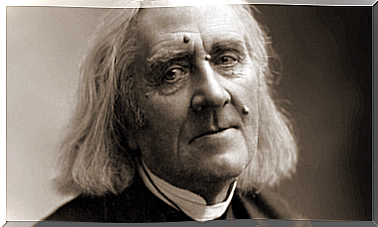Platonic Love: The Perpetual Desire For What We Lack

Plato said that we only love what we want and that we only want what we lack. It seems that already at the time of the philosopher, there was such a devastating feeling that still continues today and that takes root more strongly in each of us: permanent dissatisfaction in our life.
It’s like we’re always missing something. It doesn’t matter that in the eyes of others our life may seem enviable or that we have nothing or whom to complain about. There is a void within us that we do not know how to fill.
In relationships, this is where we get this feeling the most. There are so many people who need a love to their measure, idealized, perfect … This nostalgic and romantic vision of relationships, this love from the beginning – when you fall in love with an image, not with a concrete person -, that’s what makes us so dissatisfied. So, the idea of love is not based on reality, but on the fantasy of what could be or could have been.
There are times, not many, when this longed-for love so platonic comes true. It is then that the person enters a state of exaltation in which he feels drunk and in which he believes to have filled this deficiency which makes him suffer so much.
The problem is, after a while, she starts to lose interest and she reverts to the same platonic dynamic she was used to: wanting something unattainable and reveling in her suffering.
Desire and pleasure
There are a multitude of people who find pleasure only in desire. It seems that yearning, dreaming, having hope and idealizing is the engine that makes them vibrate. However, when these people get what they dream of, they get bored. Once we have what, a priori, fulfilled us, then there is no more room for desire and projection.
What we get is nothing more than something real, imperfect, and never seems to meet the expectations that we aspire to.

And what happens in the end? The platonic person gives up, escapes the search again for this dose of deficiency, this desire which is what makes him feel alive, even if he is in pain. It is a suffering with a certain sweet and addicting taste. She thinks there must be something better, something that keeps her delusion going day after day, like it’s the first. And if this is not the case, it is because she has not found it yet: her mission is therefore to continue to search.
Too often we think that happiness is elsewhere and that if we could get to this place where we are expected, all our dissatisfaction would disappear. But in the end, we discover that this is not the case, that we already have everything to be able to feel fulfilled and that if we knew how to modify certain nuances of our daily life – which rarely cost money – we do not we would no longer have to seek happiness elsewhere.
The problem is, making these changes terrifies us in most cases. It sets us up in anxiety and insecurity and we get stuck in what could have happened.
Learn to love what you don’t miss
The desire for what we have not yet obtained is always legitimate and often turns into a positive motivation. But when that desire turns into a need and as a result, into painful suffering, we get stuck and feel empty, unhappy and impatient.
This way of life, paradoxically, does not allow us to live. We are not free, but slaves to an idea that tells us what our life should be like.
It is therefore important to learn to love what is not lacking, what is in our life: our spouse, our work, our friends, our city. All of this assumes a multitude of positive aspects that many other people would like to have in turn. This is the particular vision of each one: it is necessary to clean its foggy glasses of routine and of disillusion, and to voluntarily change the things that do not fit together. In addition, it is about doing it with hope and to the extent possible, so that motivation turns into fear.

If we are able to appreciate and thank every day what is in our life today, the feeling of “lack” will stop locking us in a permanent illusion. We will then live in the present, we will rejoice in what is happening to us, we will accept adversities and we will always extract a learning or a positive thought.
Let us abandon the mental journeys to the future, as well as the repeated and constant complaint that tires even the most stoic of us. Stay where you are, take risks and change what you don’t like in your life, but don’t strive for perfection or the impossible, which will not happen. What you have is already perfect, it’s what needs to be, why not start enjoying it?
Also read:








